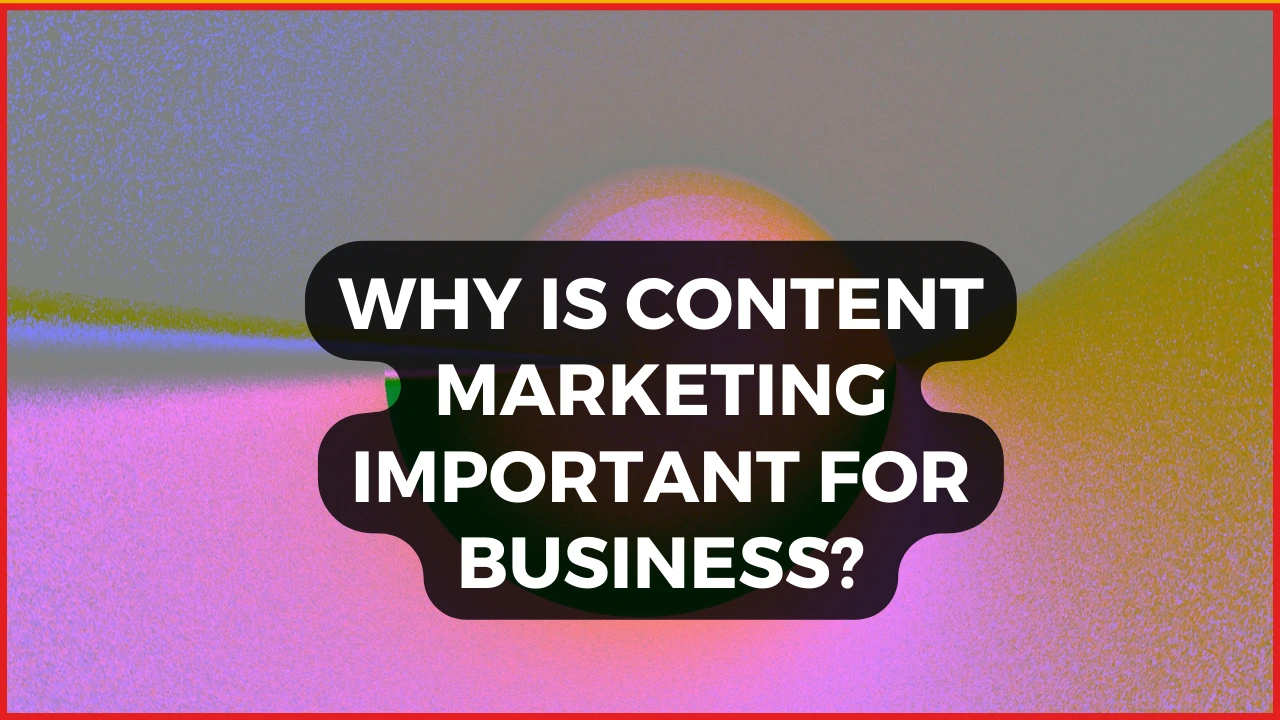In today’s digital age, content marketing has evolved from a buzzword into a critical strategy for business success. Unlike traditional marketing—where you simply broadcast your capabilities—content marketing enables you to demonstrate your expertise, build trust, and engage with your audience in a meaningful way. Whether you’re a startup or an established enterprise, creating and executing an effective content marketing strategy is essential for driving long-term growth and better Google rankings.
For more insights on why content marketing matters, check out this comprehensive overview from the Content Marketing Institute.
Why Is Content Marketing Important for Business?
1. Content as the Backbone of Digital Marketing
Content is the central hub that connects all digital marketing efforts. It fuels your blog, social media channels, and even your paid advertising campaigns. High-quality content forms the foundation of:
- SEO Strategies: Well-researched content improves your search engine visibility.
- Social Engagement: Engaging posts boost interactions across platforms.
- PPC Success: Relevant content increases the quality score of your ads.
Learn more about the role of content in SEO at Moz’s Beginner’s Guide to SEO.
2. Building Trust and Authority
When you consistently deliver valuable and unique content, you establish your business as a reliable resource. Over time, this builds trust among your target audience and positions you as an industry authority.
- Unique Content: Original, well-crafted content helps you stand out.
- Reputation Building: High-quality content fosters credibility and customer loyalty.
Discover strategies to build trust through content on HubSpot’s Marketing Blog.
3. Driving Organic Traffic and Generating Leads
Evergreen content that addresses your audience’s perennial questions can continue to drive organic traffic over time. By leveraging long-tail keywords and high-quality content, you increase your chances of ranking on the first page of Google.
- Lead Generation: Effective content marketing attracts qualified leads.
- Cost-Effective Strategy: Compared to traditional marketing, content marketing offers a higher return on investment.
4. Cost-Effectiveness and Longevity
Traditional marketing often demands a large budget with short-lived results. In contrast, content marketing offers long-term benefits:
- Reduced Costs: Lower overall spending with higher returns, especially with inbound marketing strategies.
- Long-Lasting Impact: Evergreen content continues to generate traffic and leads for years.
5. Engagement and Audience Connection
Quality content not only attracts visitors—it also engages them. When you know your audience, you can create content that speaks directly to their needs and interests, turning casual readers into loyal customers.
- Audience Research: Understand your buyer personas and craft content accordingly.
- Interactive Content: Use formats like videos, infographics, and listicles to keep your audience engaged.
For more on engaging content, visit Search Engine Journal’s guide on content marketing.
How to Create an Effective Content Marketing Strategy
Building a successful content marketing strategy requires a systematic approach. Here’s a step-by-step guide to help you get started:
- Define Your Goals
Set Objectives: Determine whether you want to increase brand awareness, drive traffic, or boost conversions.
Establish KPIs: Identify measurable indicators (e.g., organic traffic, engagement rate) to track your progress. - Know Your Audience
Research Demographics: Use tools like Google Analytics to understand who visits your website.
Identify Pain Points: Find out what questions or problems your audience faces.
Keyword Research: Use tools like Google Keyword Planner to discover long-tail keywords that match your audience’s search queries. - Choose the Right Content Formats
Listicles, How-Tos, and Guides: These formats are user-friendly and easily updated.
Case Studies and Tutorials: Offer in-depth insights that add credibility and value.
Videos and Infographics: Visual content increases engagement and can simplify complex topics. - Create and Distribute High-Quality Content
Content Creation: Focus on crafting unique, well-researched articles that resonate with your audience.
Promotion: Leverage social media, email newsletters, and other channels to distribute your content widely.
Repurposing: Adapt your content into different formats to reach a broader audience. - Monitor, Analyze, and Optimize
Use Analytics: Regularly review your content’s performance using Google Analytics and SEO tools.
Update Content: Refresh older posts to keep them relevant and competitive.
Feedback Loop: Use audience feedback to refine and improve your content over time.
Frequently Asked Questions (FAQ)
A: Content marketing builds trust and engages your audience through valuable, relevant information, while traditional marketing often focuses on one-way promotion.
A: Evergreen content remains relevant over time, continuously driving organic traffic and building authority without being tied to fleeting trends.
A: Tools like Google Keyword Planner, SEMrush, and Moz can help you identify high-performing keywords for your niche.
A: Regularly review and adjust your strategy based on performance metrics and industry trends—at least annually, if not more frequently.
A: Absolutely. Content marketing is cost-effective and scalable, making it ideal for businesses of all sizes.
Conclusion
Content marketing is essential for any business that aims to build a strong online presence, engage with its audience, and achieve long-term success. By developing a well-planned content marketing strategy, you can create high-quality, evergreen content that drives organic traffic, builds trust, and generates valuable leads. Start implementing these strategies today to stay ahead in the competitive digital landscape.





